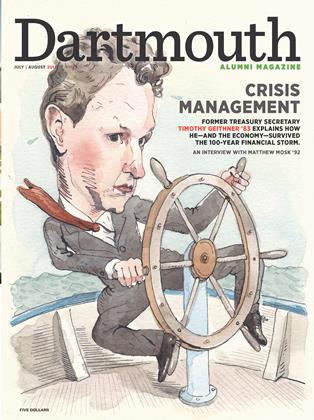IN A MOMENT THAT HE SAYS "STILL puzzles political historians,” Stein became the first online reporter to ask a question at a presidential news conference when Barack Obama called on him in 2009. (He asked whether the president supported a proposal to investigate actions of the Bush administration.) Stein, who has been part of The Huffington Post’s Washington, d.c., bureau since it was established in 2007, is now senior political editor and White House correspondent. He was brought along to the online news outlet by veteran reporter and Columbia Journalism School professor Tom edsall. “People considered us as a place that just took other people’s journalism and rehashed it,” Stein says. “We had to show that we were doing origi- nal reporting and that we were doing it really well.” Stein, who previously worked for Newsweek and New York Daily News and is a regular on Morning Joe, moved to HuffPo when the country was in the midst of two contentious political primaries, one between Obama and Hillary Clinton and another among several Republican can- didates. “There was just a never-ending stream of news coming out,” he says, “and a never-ending demand for more news.”
The demand has not slowed, and com- petition has increased. To stand out, Stein says, there has been a shift in the way on- line reporters think about their stories. “Long-form journalism has had a semi- renaissance in the online world,” he says. “A way to distinguish yourself from com- petition, which is more and more people writing faster and faster, is to step back and spend a month, two months, three months, even up to a year taking a huge bite out of a topic.”
Stein’s most recent pieces have tended toward the longer side and focus on the effects of sequestration on National In- stitutes of Health scientists who lost grant funding and people who lost unemploy- ment insurance. In spite of The Huffing- ton Post’s reputation for flashy headlines, “without good reporting, none of it really matters,” he says. “if you can uncover cor- ruption or score a fantastic interview, then you can get attention regardless of how it’s presented.”
Stein, a history major, says he got into politics “because my best friends at Dartmouth were into current affairs.”
“I’m a firm believer that good reporting will rise to the top.”
 View Full Issue
View Full Issue
More From This Issue
-
 FEATURE
FEATUREPar for the Course
July | August 2014 By RICK SHEFCHIK ’74 -
 Feature
FeatureSea of Dreams
July | August 2014 By JAMES ZUG ’91 -
 THE DAM INTERVIEW
THE DAM INTERVIEWCrisis Management
July | August 2014 By Matthew Mosk ’92 -
 PERSONAL HISTORY
PERSONAL HISTORYNothing In Common
July | August 2014 By LYNN HOLLENBECK ’83 -
 RETROSPECTIVE
RETROSPECTIVEOpportunity Knocks
July | August 2014 By CHARLES DEY ’52 -
 CLASSROOM
CLASSROOMWall Papers
July | August 2014 By LISA FURLONG
Gavin Huang ’14
-
 Feature
FeatureRecommended Reading
Nov - Dec By GAVIN HUANG ’14 -
 Article
ArticleEye On Cuba
MAY | JUNE 2014 By Gavin Huang ’14 -
 OVERHEARD
OVERHEARDDissent and Disapproval
July | August 2014 By GAVIN HUANG ’14 -
 Article
ArticleMind Matters
July | August 2014 By Gavin Huang ’14 -
 Article
ArticleMagic Touch
NovembeR | decembeR By Gavin Huang ’14 -
 Article
ArticleAll Shook Up
MAY | JUNE By Gavin Huang ’14
Article
-
 Article
ArticleTEACHERS' CONFERENCE
APRIL, 1908 -
 Article
ArticleWINTER CONCERTS
-
 Article
ArticleIntellectual Athlete
October 1980 By Don Rosenthal '81 -
 Article
ArticleThe Undergraduate Chair
March 1957 By DONALD D. MCCUAIG '54 -
 Article
ArticleBergen County
OCTOBER 1962 By DONALD SISSON ’45, Gilbert G. Sykes -
 Article
ArticleYou Want How Many Canapes?
MAY 1985 By Kate Bravar '84

